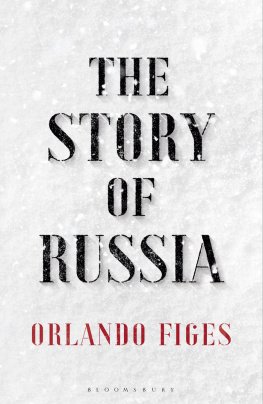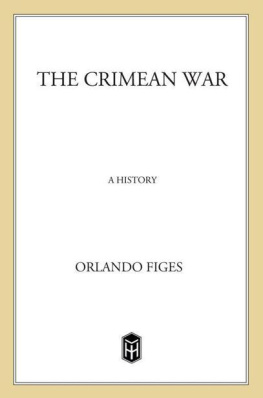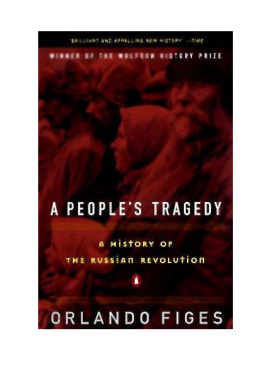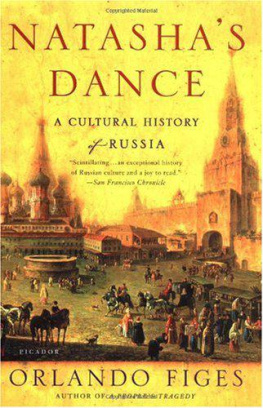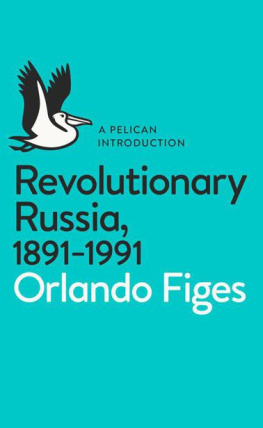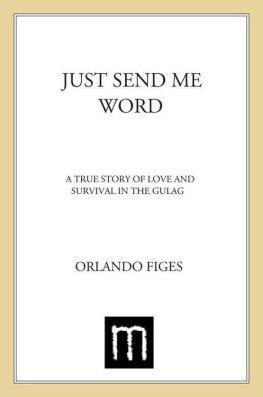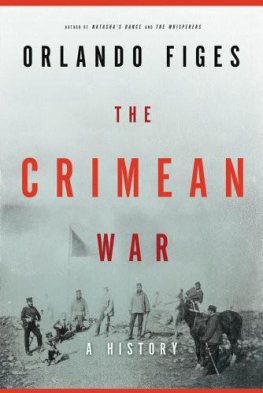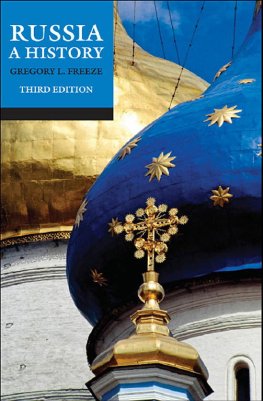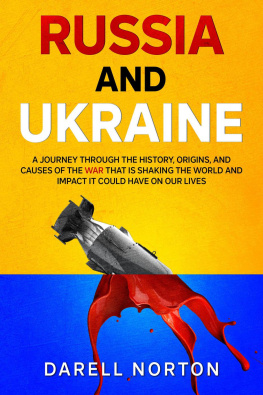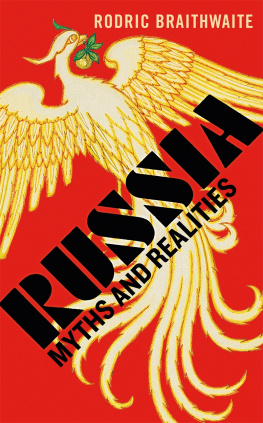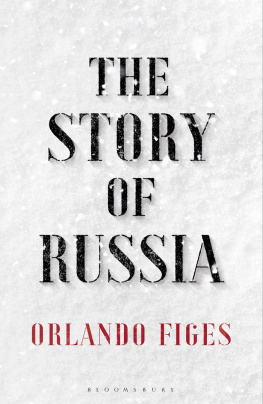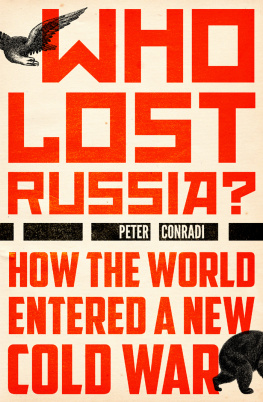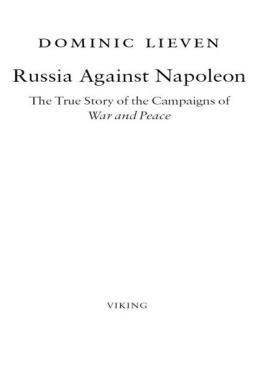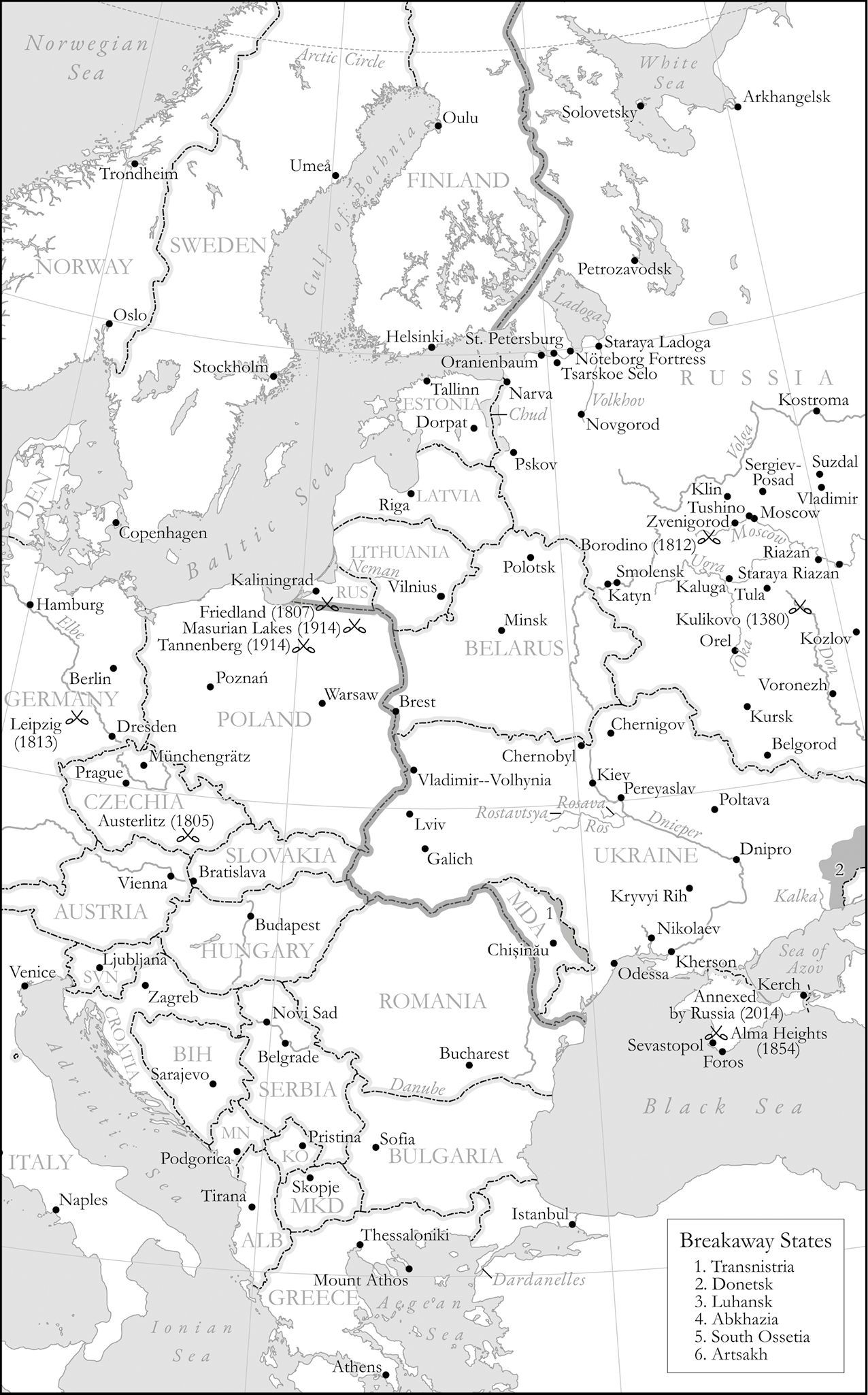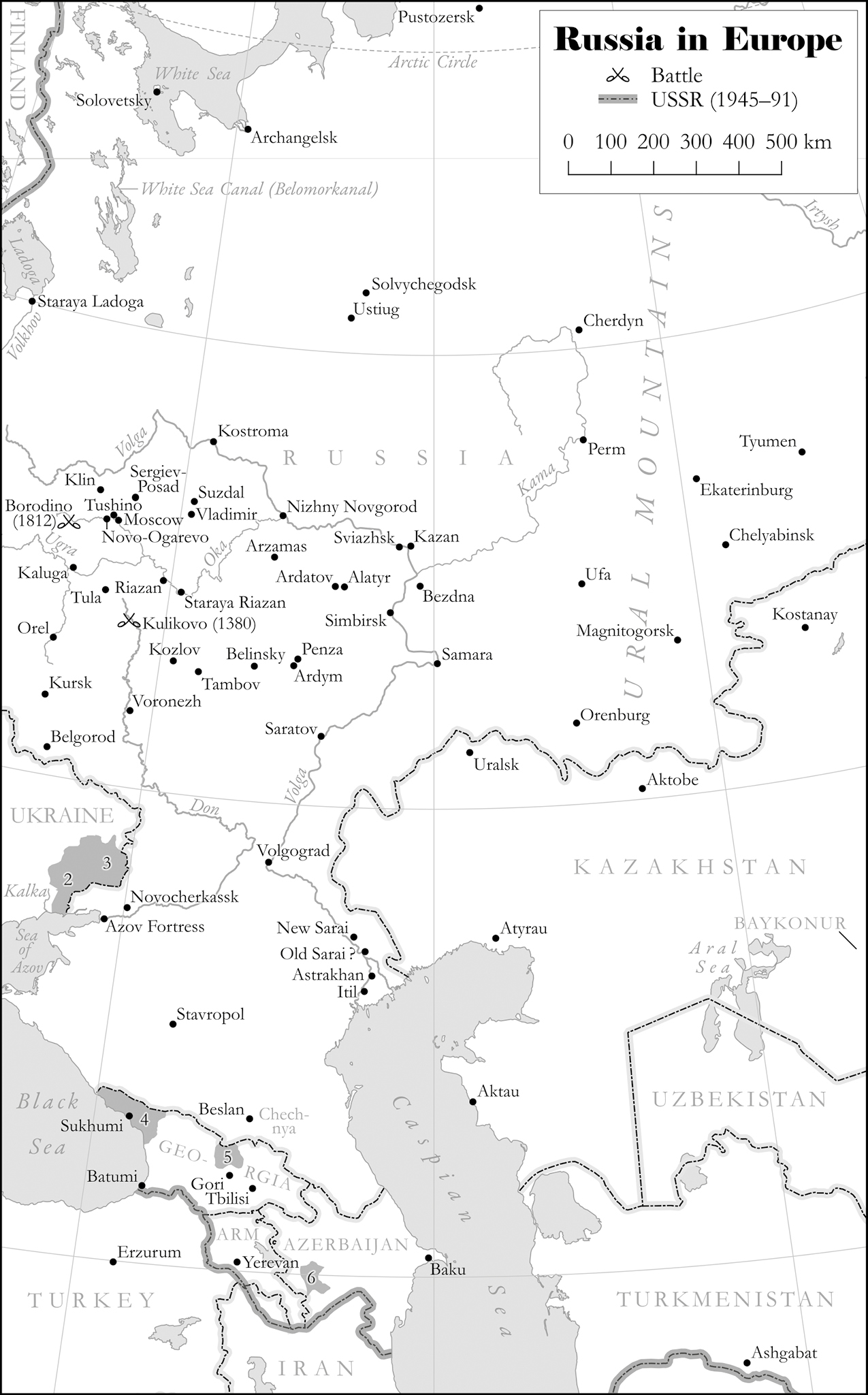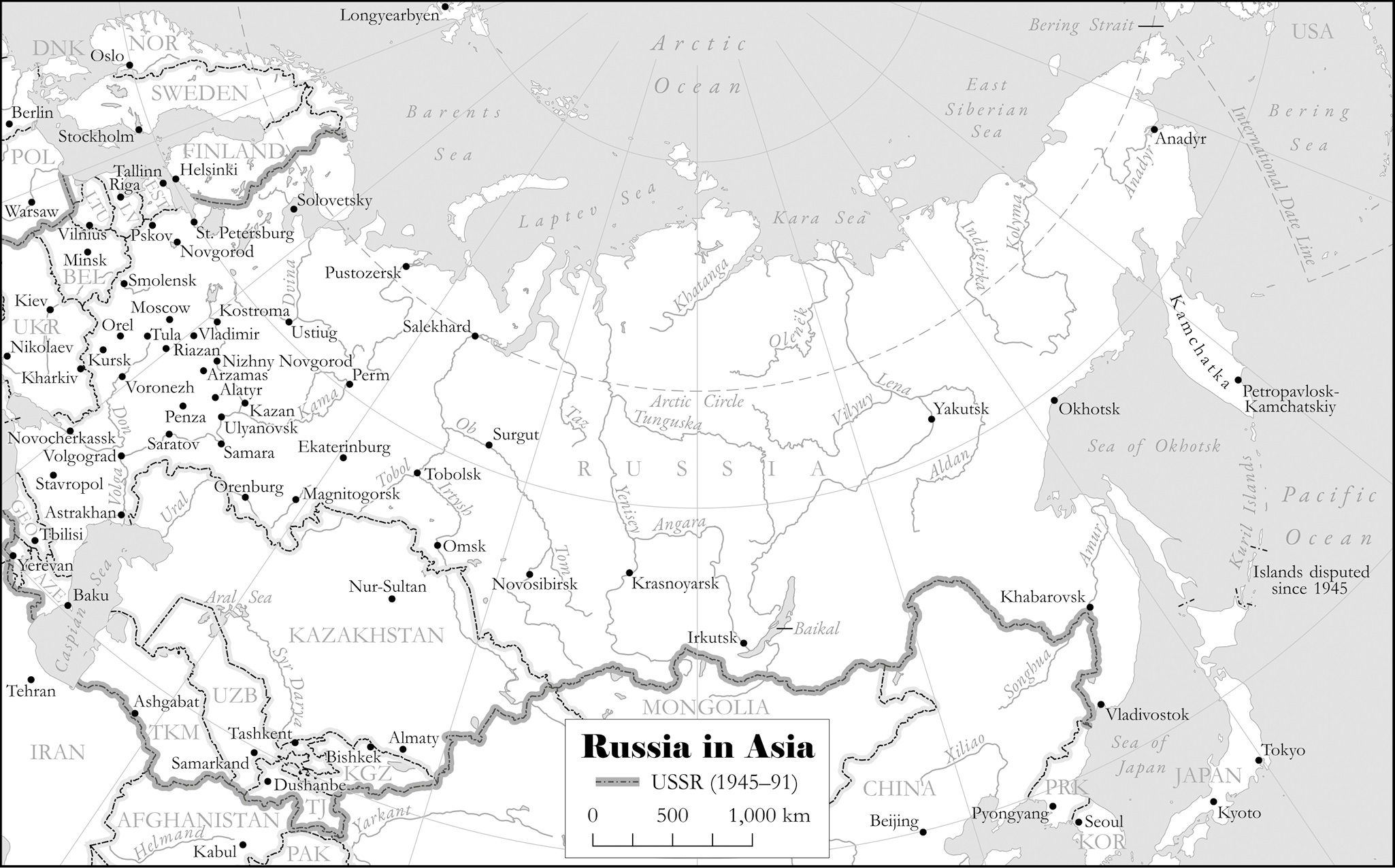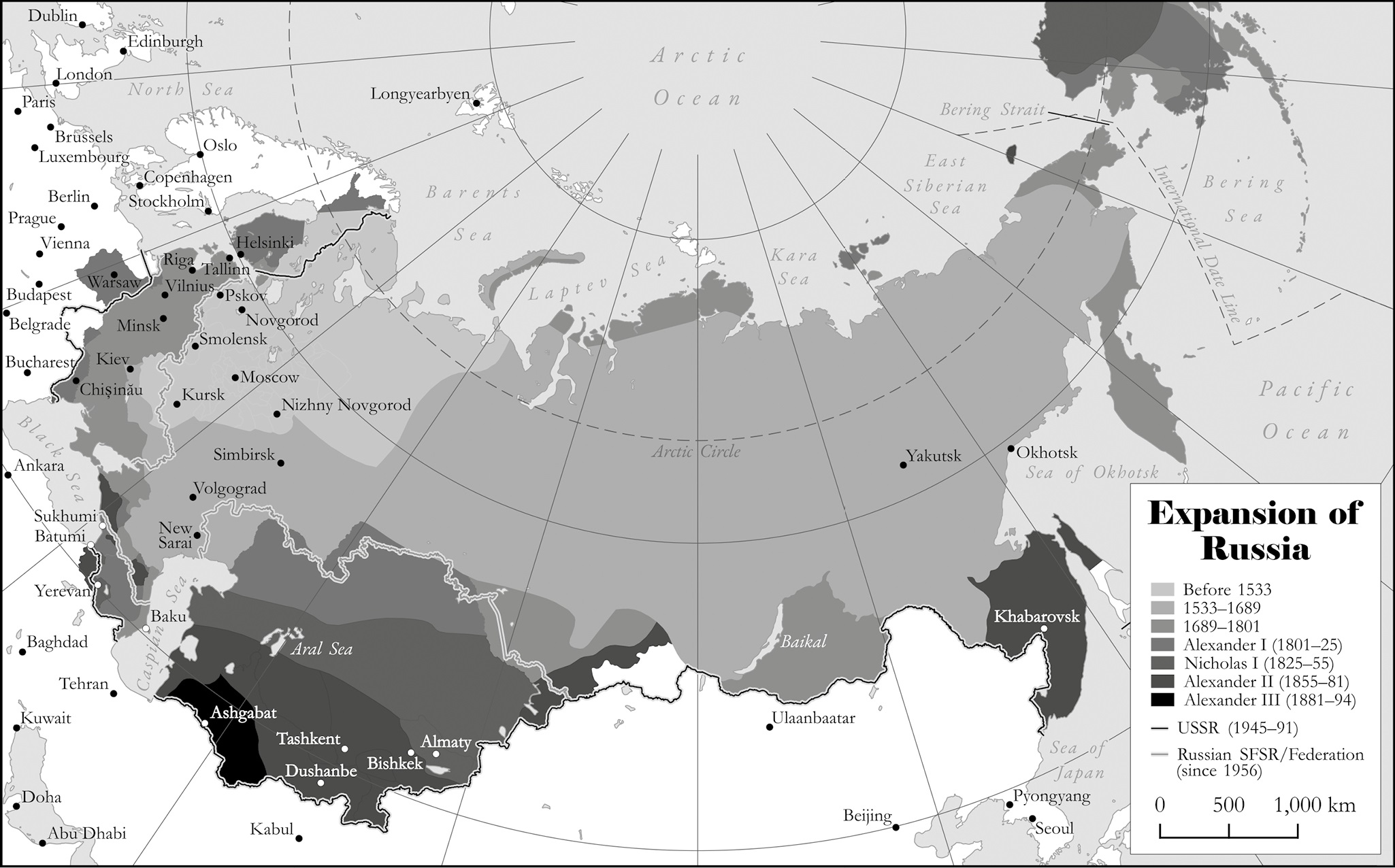
The Story of Russia

BLOOMSBURY PUBLISHING
Bloomsbury Publishing Plc
50 Bedford Square, London, WC1B 3DP, UK
29 Earlsfort Terrace, Dublin 2, Ireland
BLOOMSBURY, BLOOMSBURY PUBLISHING and the Diana logo are trademarks of Bloomsbury Publishing Plc
First published in Great Britain 2022
This electronic edition first published in 2022
Copyright Orlando Figes, 2022
Orlando Figes has asserted his right under the Copyright, Designs and Patents Act, 1988, to be identified as Author of this work
All rights reserved. No part of this publication may be reproduced or transmitted in any form or by any means, electronic or mechanical, including photocopying, recording, or any information storage or retrieval system, without prior permission in writing from the publishers
Every reasonable effort has been made to trace copyright holders of material reproduced in this book, but if any have been inadvertently overlooked the publishers would be glad to hear from them.
A catalogue record for this book is available from the British Library
ISBN: HB: 978-1-5266-3174-9; TPB: 978-1-5266-3176-3; EBOOK: 978-1-5266-3167-1; EPDF: 978-1-5266-5689-6
To find out more about our authors and books visit www.bloomsbury.com and sign up for our newsletters
By the same author
Peasant Russia, Civil War: The Volga Countryside in Revolution, 191721
A Peoples Tragedy: The Russian Revolution, 18911924
Interpreting the Russian Revolution: The Language and Symbols of 1917 (with Boris Kolonitskii)
Natashas Dance: A Cultural History of Russia
The Whisperers: Private Life in Stalins Russia
Crimea: The Last Crusade
Just Send Me Word: A True Story of Love and Survival in the Gulag
Revolutionary Russia, 18911991
The Europeans: Three Lives and the Making of a Cosmopolitan Culture
For Stephanie.
Again. Always.
Contents
On a cold and grey November morning, in 2016, a small crowd gathered on a snow-cleared square in front of the Kremlin in Moscow. They were there to witness the unveiling of a monument to Grand Prince Vladimir, the ruler of Kievan Rus, the first Russian state, between 980 and 1015. According to legend, Vladimir was baptised in the Crimea, then part of the Byzantine Empire, in 988, thus beginning the conversion of his people to the Eastern Orthodox Church. Russias main religious leaders the patriarch of Moscow and All-Russia, the Catholic ordinariate, the grand mufti, the chief rabbi and the head of the Buddhist Sangha were all in attendance in their multicoloured robes.
The bronze figure, bearing cross and sword, stood at over twenty metres tall. It was the latest in a long series of elephantine shrines to Vladimir, all erected since the fall of Communism in the same kitsch Russian national style developed in the nineteenth century. Other Russian towns Belgorod, Vladimir, Astrakhan, Bataisk and Smolensk had built monuments to the grand prince with funding from the state and public subscriptions. The Moscow statue was financed by the Ministry of Culture, a military history society and a motorcycle club.
Another Vladimir, President Putin, gave the opening address. Even as he spoke he managed to look bored. He seemed to want the ceremony to be done as soon as possible perhaps the reason why it started earlier than planned, when the film director Fedor Bondarchuk, who had vocally supported the recent Russian annexation of Ukrainian Crimea, invited Vladimir Vladimirovich to the microphone. Reading in a flat tone from his script, Putin noted the symbolism of the date for this unveiling, 4 November, Russias Day of National Unity. The grand prince, he proclaimed, had gathered and defended Russias lands by founding a strong, united and centralised state, incorporating diverse peoples, languages, cultures and religions into one enormous family. The three modern countries that could trace their origins to Kievan Rus Russia, Belarus and Ukraine were all members of this family, Putin continued. They were a single people, or nation, sharing the same Christian principles, the same culture and language, which, he suggested, formed the Slavic bedrock of the Russian Empire and the Soviet Union. His point was echoed by the patriarch Kirill, who spoke next. If Vladimir had chosen to remain a pagan, or had converted only for himself, there would be no Russia, no great Russian Empire, no contemporary Russia.
Natalia Solzhenitsyn, the writers widow, gave the third and final speech, short and different in tone. The traumatic history of Russias twentieth century had, she said, divided the country, and of all our disagreements, none is more divisive than our past. She ended with a call to respect our history, which meant not just taking pride in it but honestly and bravely judging evil, not justifying it or sweeping it under the carpet to hide it from view. Putin looked uncomfortable.
The Ukrainians were furious. They had their own statue of the grand prince, Volodymyr as they call him. It was built in 1853, when Ukraine had been part of the Russian Empire, high up on the right bank of the Dnieper River overlooking Kiev, the Ukrainian capital. After the collapse of the Soviet Union in 1991, the statue had became a symbol of the countrys independence from Russia. Within minutes of the ceremonys closing in Moscow, Ukraines official Twitter account posted a picture of the Kiev monument with a tweet in English: Dont forget what [the] real Prince Volodymyr monument looks like. The Ukrainian president, Petro Poroshenko, elected in the wake of the 2014 Maidan revolution,
Kiev and Moscow had been fighting over Volodymyr/Vladimir for several years. The monument in Moscow had been made a metre taller than the one in Kiev, as if to assert the primacy of Russias claim to the grand prince. While Putin had enlisted Vladimir as the founder of the modern Russian state, the Ukrainians claimed Volodymyr as their own, the creator of the medieval European state of Rus-Ukraine, as he had been described by Poroshenko in a 2015 decree on the millennium of the grand princes death in 1015 (the fact that the term Ukraine would not appear in written sources until the end of the twelfth century and then only in the sense of okraina , an old Slav word for periphery or borderland was conveniently overlooked). A few months later, Poroshenko added that Volodymyrs decision to baptise Kievan Rus had been not only a cultural or political decision, but a European choice by which Kiev had joined the Christian civilisation of Byzantium. The message was clear: Ukraine wanted to be part of Europe, not a Russian colony.
Both sides were calling on the history of Kievan Rus a history they share to reimagine narratives of national identity they could use for their own nationalist purposes. Historically, of course, it makes little sense to talk of either Russia or Ukraine as a nation or a state in the tenth century (or indeed at any time during the medieval period). What we have in the conflict over Volodymyr/Vladimir is not a genuine historical dispute, but two incompatible foundation myths.
Next page
